Iron is a mineral that is required for a variety of vital biological activities.
Some people may have insufficient iron intake, poor absorption, or high iron requirements. As a result, they may be vulnerable to iron deficiency, which can cause fatigue, dizziness, and weakness, among other symptoms (1).
These populations include infants and children, athletes, persons with significant menstrual bleeding, pregnant women, people with gastrointestinal (GI) illnesses or cancer, and those who often donate blood.
Fortunately, several iron supplements are available to assist in replenishing your iron levels.
The following are the top 15 iron supplements.
Why is iron essential?
Iron is found in hemoglobin, a protein that takes oxygen from your lungs to your tissues, and myoglobin, another protein that transports and stores oxygen for your muscles.
Iron is also required for brain cell development, physical growth, hormone production, and muscle metabolism (2).
Your body needs a continuous supply of iron from your food to sustain these critical functions.
In nature, iron exists in two forms (3):
- Heme iron: a kind of iron present in animal products that is more easily absorbed by the human body
- Non-heme iron: a type of iron present in plant-based and iron-fortified diets that is less absorbable than heme iron
Iron supplements are also available. Iron supplements may be required for persons who do not obtain enough iron from their food or have elevated iron requirements.
How we chose
This article investigates iron supplements using the following criteria:
Quality: A third-party agency ideally evaluates iron supplements for quality and purity.
- Iron type: The iron in the supplements is in easily absorbed forms.
- Other nutrients: The supplements lack elements that interfere with iron absorption and may contain minerals that help absorption.
- Dose: The iron in the supplements is effective.
- Price: We included items to fit a wide range of budgets.
Eat Healthy is Good’s picks of the best iron supplements
Best iron supplement for anemia
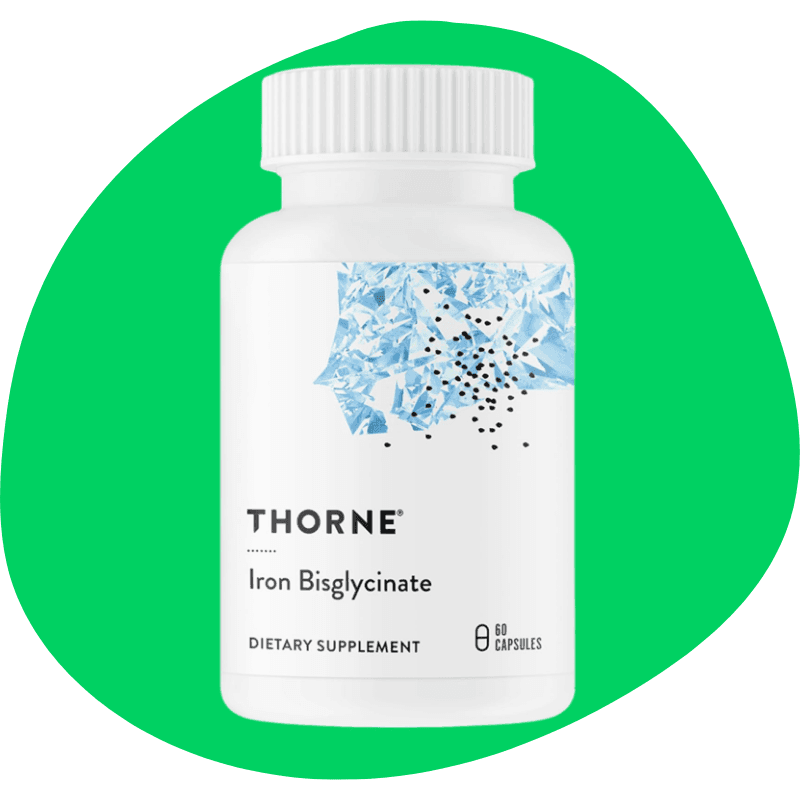
- Type: Ferrochel ferrous bisglycinate chelate
- Dosage: 1 capsule per day
- Certifications: NSF Certified for Sport
While there are many options, Thorne Iron Bisglycinate is one of the finest for battling anemia since it is manufactured by one of the most respected supplement companies and includes just iron.
Furthermore, each capsule contains 139% of the Daily Value (DV) for iron in the form of ferrous bisglycinate chelate – a kind of iron that your body can easily absorb and is less likely to induce GI side effects than other forms of iron, such as ferrous sulfate (4, 5).
The product is also NSF Certified for Sport, which means it does not contain ingredients forbidden by most sports organizations and is safe for athletes.
Thorne’s facilities are also approved by some foreign third-party organizations, including Australia’s Therapeutic Goods Administration, a regulatory agency managed by the Australian Government Department of Health.

Best iron supplement for anemia
Nature Made Iron 65mg Tablets

- Type: ferrous sulfate
- Dosage: 1 tablet per day
- Certifications: USP-verified
Nature Made claims 65 mg of iron per capsule, 361% of the DV for iron, or 325 mg of ferrous sulfate.
Ferrous sulfate is a typical type of supplementary iron with high solubility, which means it releases iron ions more quickly and is thus simpler to absorb (4).
This kind of iron, however, is more prone than others to induce GI side effects such as constipation (5).
The product has been validated by the United States Pharmacopeia (USP), a third-party body that examines the quality, such as purity, potency, and performance.

Best iron supplement with vitamin C
Pure Encapsulations OptiFerin-C

- Type: iron bisglycinate
- Dosage: 1 capsule per day
- Certifications: certified gluten-free
OptiFerin-C by Pure Encapsulations includes 28 mg of iron bisglycinate and 100 mg of vitamin C.
Vitamin C is frequently included in iron supplements because it may aid absorption (6).
The supplement is kosher, vegan, gluten-free, soy-free, and dairy-free. It is also manufactured in a CGMP-certified facility.
Pure Encapsulations products meet or exceed USP quality and purity criteria (7).
According to the company’s website, Pure Encapsulations products are evaluated by third-party laboratories such as Skilliker, Eurofins, Intertek, and Advanced Laboratories.

Best vegan iron supplement with vitamin C
Garden of Life Vitamin Code Raw Iron

- Type: brown rice chelate
- Dosage: 1 capsule per day
- Certifications: certified vegan, certified gluten-free, non-GMO
Vitamin Code from Garden of Life Raw Iron contains 22 milligrams of whole food iron and 25 milligrams of vitamin C.
“Whole food iron” refers to iron derived from nutrients found in raw foods.
It also means the supplement was made without excessive heat, synthetic binders or fillers, artificial flavors, sweeteners, colors, or additives.
The food also includes an organic fruit and vegetable combination and a probiotic and enzyme blend to aid digestion.
All Garden of Life products are made in an FDA-approved facility. This supplement is non-GMO, vegan, kosher, raw, and gluten-free.

Best subscription-based iron supplements
Care/of Iron

- Type: ferrous bisglycinate chelate
- Dosage: 1 capsule per day
- Certifications: non-GMO
Care/of is a subscription vitamin service that allows you to tailor the vitamins and supplements you receive by taking a questionnaire.
An iron supplement is one of the supplements available from the company.
The supplement provides 18 mg of iron as ferrous bisglycinate chelate, less prone than other iron forms like ferrous sulfate to produce GI problems like constipation (4, 5).
The supplement is vegan, gluten-free, non-GMO, and vitamin C-fortified for improved absorption (6).
Persona Iron with Vitamin C

- Type: iron Ferronyl
- Dosage: 1 capsule per day
- Certifications: non-GMO
Persona is another personalized subscription business that requires consumers to complete a survey before sending them vitamins and supplements tailored to their specific requirements.
Persona provides an iron supplement designed to absorb and easy on the stomach.
It contains 18 mg of iron in the form of Ferronyl and vitamin C for absorption.
While the vitamin is gluten-free and devoid of significant allergies, it is manufactured in an environment where cross-contamination is possible. As a result, it is not suitable for people who have severe food allergies or sensitivities.
Best multivitamin with iron
Ritual Essential Multivitamin for Women 18+
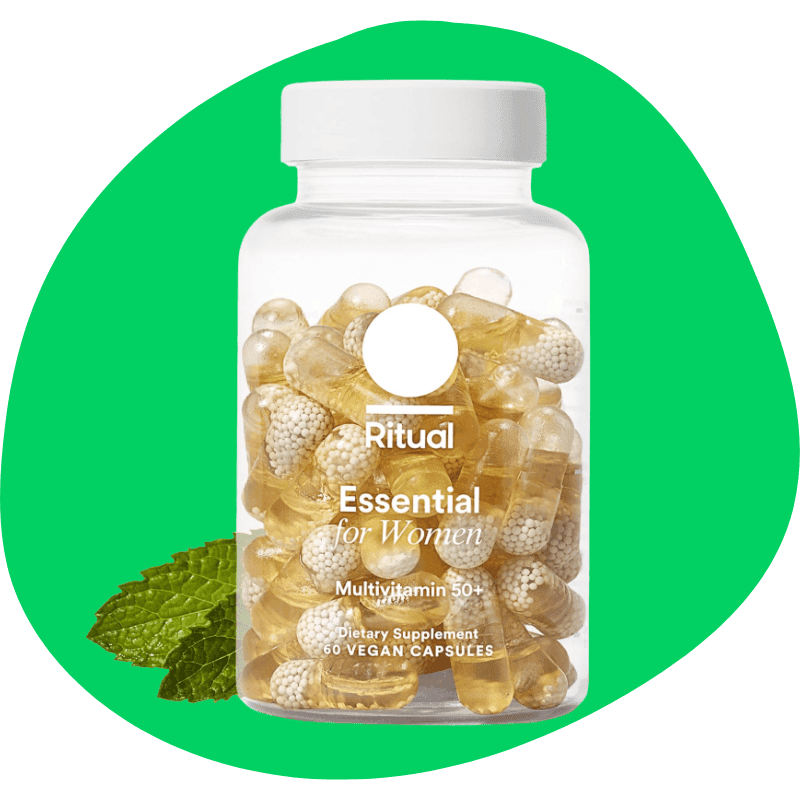
- Type: iron bisglycinate
- Dosage: 2 capsules per day
- Certifications: USP-verified
Ritual Essential Multivitamin for Women 18+ is intended for those who want to supplement their diets.
The mint-scented capsules, in particular, include iron bisglycinate, which may be simpler to absorb and produce less GI pain than other forms of iron (4, 5).
The pill also contains numerous nutrients you may need to receive more from diet alone, such as vitamin D, DHA, and folate.
Unlike many other multivitamins, it does not include calcium, which may interfere with iron absorption (8).
Remember that while the multivitamin is vegan-friendly, it lacks certain minerals that vegans may need more of, such as iodine and zinc (9).
It is also deficient in magnesium and lacks vitamin C and numerous B vitamins other than folate and B12.

Best vegetarian iron supplement
NOW Iron 18 mg

- Type: Ferrochel ferrous bisglycinate
- Dosage: 1 capsule per day
- Certifications: non-GMO
NOW is well-known for providing high-quality items at reasonable prices.
This supplement contains iron bisglycinate chelate, which has 18 mg of iron in each capsule, and each container contains 120 capsules.
Furthermore, the product is made in facilities approved by Underwriters Laboratories (UL), a third-party testing agency that assures stringent safety requirements are met.
It is also kosher, halal, and non-GMO.
While NOW supplements are free of gluten and major allergies, they are manufactured in places where cross-contamination may occur.

Best vegan iron supplement
MegaFood Blood Builder

- Type: iron bisglycinate
- Dosage: 1 tablet per day
- Certifications: certified gluten-free, certified vegan, glyphosate residue-free
MegaFood Blood Builder contains 26 mg of iron bisglycinate and 15 mg of vitamin C for enhanced absorption.
Furthermore, the product contains folate and B12, both of which are necessary for the maintenance of healthy blood cells.
Six third-party testing bodies certify all MegaFood supplements. The company’s certifications are B Corporation, NSF gluten-free, non-GMO, kosher, vegan, and glyphosate residue-free.
However, remember that the goods have not been third-party evaluated for accuracy or efficacy.

Best chewable iron supplement
Klaire Labs Chewable Iron Chelate

- Type: Ferrochel ferric trisglycinate chelate
- Dosage: 1 chewable tablet per day
- Certifications: non-GMO
Chewable pills, like liquid supplements, are handy and enjoyable for getting your vitamins and minerals.
Klaire Labs Chewable Iron Chelate contains 30 mg of elemental iron in Ferrochel ferric trisglycinate chelate, a highly absorbable form of iron.
The pills taste like cherries and have less added sugar than many other chewable vitamins on the market.
Klaire Labs supplements are made in CGMP-compliant facilities.

Best iron supplement for sensitive stomachs
Pure Encapsulations Iron Liquid

- Type: ferric pyrophosphate
- Dosage: 1 teaspoon (5 mL) per day
- Certifications: certified gluten-free
Pure Encapsulations Iron Liquid contains 15 mg of iron in the form of SunActive Fe, a form of iron with high bioavailability that is well absorbed and does not cause gastrointestinal difficulties, with every 1 teaspoon (5 mL) intake (10).
As a result, Pure Encapsulations Iron Liquid is an excellent choice for persons with gastrointestinal side effects like constipation while taking iron salts (10).
It also has cranberry and wild blueberry extract, which is supposed to give antioxidant support.
This product surpasses USP criteria and is evaluated for quality and purity by third-party laboratories. It is also gluten-free and vegetarian.
Pure Encapsulations Iron Liquid is flavored with a natural pomegranate taste and sweetened with apple juice concentrate.

Best liquid iron supplements
NOW Iron Liquid

- Type: ferric glycinate
- Dosage: 2 teaspoons (10 mL) per day
- Certifications: Certified kosher
Liquid iron solutions are ideal for folks who dislike swallowing pills or using chewable tablets.
NOW Liquid Iron contains 18 mg of iron in ferric glycinate, a mild form that is less prone to produce constipation than other forms of iron, such as ferrous sulfate (4, 5).
Unlike many other liquid iron supplements, NOW Liquid Iron includes no added sugars. Instead, it’s sweetened with the sugar alcohol xylitol, making it a suitable alternative for those who need to control their blood sugar levels, such as diabetics.
Remember that excessive xylitol use might result in gastrointestinal adverse effects such as flatulence and bloating. As a result, if you often eat xylitol-containing meals and beverages, this product may not be suitable (11).
NOW Liquid Iron is made in UL-approved facilities and is kosher, halal, and non-GMO certified.


- Type: Ferrochel ferrous bisglycinate chelate
- Dosage: 1 tablespoon (15 mL) per day
- Certifications: non-GMO
Mary Ruth’s is a well-known supplement firm specializing in vegan items such as this liquid iron supplement.
Mary Ruth’s Liquid Iron contains 18 mg of iron, or 100% of the daily value, in the form of Ferrochel ferrous bisglycinate chelate, a highly absorbable form of iron that is less prone to induce GI side effects such as constipation than other forms of iron, such as ferrous sulfate (4, 5).
This berry-flavored liquid supplement is gluten- and soy-free, sweetened with stevia rather than sugar. It is also suitable for folks on vegan diets.
Unfortunately, only a subset of Mary Ruth’s goods is subjected to third-party testing. One of them is not their Liquid Iron supplement.
Nonetheless, this liquid supplement is a fantastic alternative for individuals searching for a great-tasting liquid iron supplement devoid of sugar alcohols and artificial sweeteners.

Best prenatal with iron
Thorne Basic Prenatal

- Type: Ferrochel ferrous bisglycinate chelate
- Dosage: 3 capsules per day
- Certifications: gluten-free
Although Thorne Basic Prenatal is intended for pregnant and lactating women, it can also be taken as a multivitamin by people seeking a multivitamin that includes more than 100% of their daily iron requirements.
This prenatal supplement contains 167% of the DV for iron in the form of Ferrochel ferrous bisglycinate chelate, which is highly bioavailable. It also has vitamin C, zinc, folate, iodine, selenium, vitamins B6, B12, and D, and many other minerals that benefit women’s health.
Thorne Basic Prenatal is a well-rounded multivitamin designed for women of reproductive age who want more iron.

Best prenatal iron supplement
Needed Prenatal Iron

- Type: Ferrochel ferrous bisglycinate
- Dosage: 1 capsule per day
- Certifications: non-GMO
During pregnancy, iron requirements rise, and some women cannot achieve their iron requirements just via food (2).
Needed Prenatal Iron is an excellent choice to take iron separately from your everyday prenatal supplement.
The supplement contains just 13.5 mg of iron per capsule, 50% of the daily iron intake during pregnancy. Some pregnant women may not require as much additional iron as others (2).
Women who require extra iron, such as those suffering from anemia, might take additional tablets daily to meet 100% or more of their requirements throughout pregnancy (2).
Needed supplements are third-party verified for safety and quality with each batch.
Customers can buy the supplement one time or join up for a 3- or 6-month subscription.
Who should take iron supplements?
People with sufficient iron reserves should satisfy their iron demands via food rather than supplementation.
However, you may need an iron supplement if you have an existing iron deficit or low iron storage or want to maintain healthy iron levels.
Iron supplements may be beneficial to the following populations:
- infants and kids
- people who are pregnant
- people with heavy menstrual bleeding
- people with certain forms of cancer, such as colon cancer
- people with GI disorders, like celiac or Crohn’s disease
- people with heart failure
- people who frequently donate blood
- athletes
Only give your child an iron supplement if a healthcare practitioner advises it. Children are more vulnerable to iron poisoning than adults (12).
Some persons with iron deficiency anemia may require iron infusions if they do not react to oral iron, cannot absorb iron effectively, or have iron losses that are too substantial to be managed with oral supplements.
Consult a healthcare expert to determine whether an iron supplement benefits you.
How to choose an iron supplement
When selecting an iron supplement, numerous things must be considered, including the kind of iron, the given dose, and product quality and safety.
Type of iron
Because there are so many various types of iron supplements available to individuals who need them, finding the proper one can be difficult.
Ferrous and ferric iron salts, which include ferric sulfate, ferrous gluconate, ferrous sulfate, and ferric citrate, are the most common.
Ferrous iron is more bioavailable than ferric iron due to its increased solubility, which means it is simpler for your body to absorb (2).
Other iron forms include heme iron polypeptides (HIP), carbonyl iron, iron amino acid chelates, and polysaccharide-iron complexes (PIC).
Some types of iron, such as ferrous sulfate, are more prone than others, such as iron bisglycinate chelate, to induce GI issues such as constipation (4, 5).
Dosing
Discuss optimal dosage with a healthcare practitioner.
The following are the current RDAs for iron in healthy adolescents and adults (2):
| Age | Male | Female | Pregnancy | Breastfeeding |
|---|---|---|---|---|
| 14–18 years | 11 mg | 15 mg | 27 mg | 10 mg |
| 19–50 years | 8 mg | 18 mg | 27 mg | 9 mg |
| 51 years and older | 8 mg | 8 mg | — | — |
Remember that if you’re iron deficient, you’ll require more iron than most people do daily.
A healthcare practitioner can prescribe a dosage that works best for your requirements if you have low iron storage, a deficiency, or need more iron for whatever reason.
Product quality and safety
When looking for an iron supplement, seek high-quality products that have passed third-party quality and purity testing by reputable organizations such as USP and NSF International.
It is also critical to select items made in facilities that follow the FDA’s CGMPs.
How to take iron supplements
Iron deficiency anemia is commonly treated with daily oral iron supplements for at least three months to rebuild iron levels. Some people may benefit from taking iron supplements even after their hemoglobin levels have returned to normal (1).
Iron deficient people should take an iron-only supplement since other elements in multivitamins, such as calcium, may hinder iron absorption.
Iron supplements should be taken between meals and not combined with tea, coffee, milk, or other foods or beverages that may hinder iron absorption (8).
Instead, combining iron with a source of vitamin C, such as orange juice or bell peppers, can improve iron absorption (8).
Potential side effects and safety concerns
Certain iron supplements are more prone than others to have adverse effects. Iron may also be harmful in extremely high concentrations.
This is why, before taking iron supplements, it is critical to consult a healthcare practitioner about the optimal dose.
Iron supplementation may cause the following adverse effects (2, 4, 5):
- constipation
- diarrhea
- nausea
- abdominal pain
To limit the risk of adverse effects and toxicity, avoid exceeding the specified Tolerable Upper Intake Levels for iron supplements unless recommended by a healthcare expert. These are the levels (2):
- 40 mg per day for babies and kids
- 45 mg per day for teens and adults
Finally, keeping iron supplements out of their reach is critical because children are more sensitive to iron poisoning than adults. Children may confuse iron supplements for sweets and consume excessive amounts, which can be dangerous (12).
Drug interactions
Certain drugs may potentially interact with iron supplements.
Iron supplements, for example, may limit the absorption of Parkinson’s disease drugs and diminish the efficacy of levothyroxine, a popular prescription used to treat hypothyroidism, goiter, and thyroid cancer (2).
On the other hand, some drugs, such as proton pump inhibitors, used to treat acid reflux or stomach ulcers, can impair iron absorption because they diminish gastric acid output, which is essential for iron absorption (2).
When to see a doctor
Iron deficiency can induce weariness, weakness, and trouble concentrating (2).
Women with heavy periods, pregnant women, and persons with medical problems promoting nutritional malabsorption are more likely to develop iron deficiency anemia.
If you suspect you have an iron deficiency, you should consult a doctor and have proper tests done.
It is best not to address iron deficiency alone. While most individuals respond well to oral iron supplements, some may require iron infusions to improve their body’s iron levels (8).
Frequently asked questions
Do iron pills work?
For the most part, yes. The initial line of treatment for iron deficient anemia is generally oral iron supplements.
However, certain persons with iron deficiency anemia may require iron infusions if they do not react to oral iron, cannot absorb iron effectively, or have iron losses that are too substantial to be managed with oral iron supplements
What is the best form of iron supplement to take?
Your health requirements determine this.
There are several bioavailable iron products on the market. Ferrous and ferric iron salts, which include ferric sulfate, ferrous gluconate, ferrous sulfate, and ferric citrate, are the most common.
Specific forms of iron, such as ferrous bisglycinate chelate, are less prone than others to elicit GI symptoms such as constipation.
How can I boost my iron levels quickly?
It takes time to build your iron levels, especially if you have low blood levels. A healthcare practitioner can prescribe a specific treatment strategy if you have low iron.
Iron deficiency anemia is often treated with daily oral iron supplements for at least three months to rebuild tissue iron reserves.
How much iron should I take in supplement form?
The amount of iron you should take will depend on your iron levels.
Iron deficiency is often treated by taking iron in divided daily dosages to achieve 100-200 mg of elemental iron per day.
However, studies show that consuming iron in lower amounts once or every other day may increase absorption and tolerance (8).
Specific dose recommendations should be obtained from a healthcare expert. Take high-dose iron tablets only if advised and overseen by a healthcare expert.
Is it OK to take iron supplements every day?
Yes, it is possible for those who require it.
Most people do not require iron daily, and ingesting too much can result in iron toxicity.
On the other hand, people with chronically low iron reserves and those with insufficient dietary iron consumption may require a daily iron supplement to maintain appropriate iron levels.
If you have any queries regarding the iron supplement dose or how frequently you should take your iron supplement, see your doctor.
What can I take with iron supplements to avoid constipation?
You may do a few things to avoid or alleviate constipation when taking iron supplements. Spread the appropriate amount out over the day and stay hydrated.
It’s also a good idea to start with half the suggested dose and gradually raise it over a few days until you reach the recommended dose.
Additionally, before choosing a supplement, evaluate the kind of iron. Some types of iron, such as ferrous sulfate, are more prone than others, such as iron bisglycinate chelate, to produce constipation (4, 5).
If your constipation persists, a stool softener may be beneficial. Just be sure to consult with a medical professional first.
The Bottom Line
Iron is an essential mineral for oxygen delivery and the development of healthy red blood cells.
While it is usually preferable to meet your iron needs through a diet rich in iron-rich whole foods, supplements may occasionally be required to meet your daily iron demands.
Several iron supplements are available, each with a different amount and form of the mineral.
Remember to consult a healthcare expert before starting any new supplement, and consider the above considerations when selecting a high-quality product.




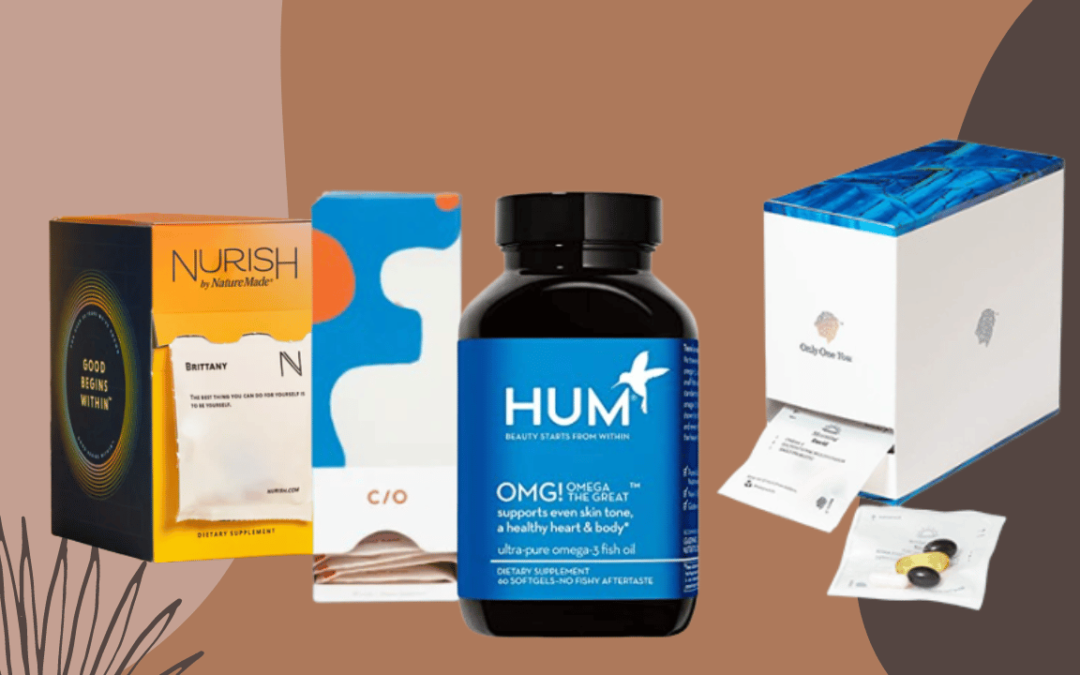
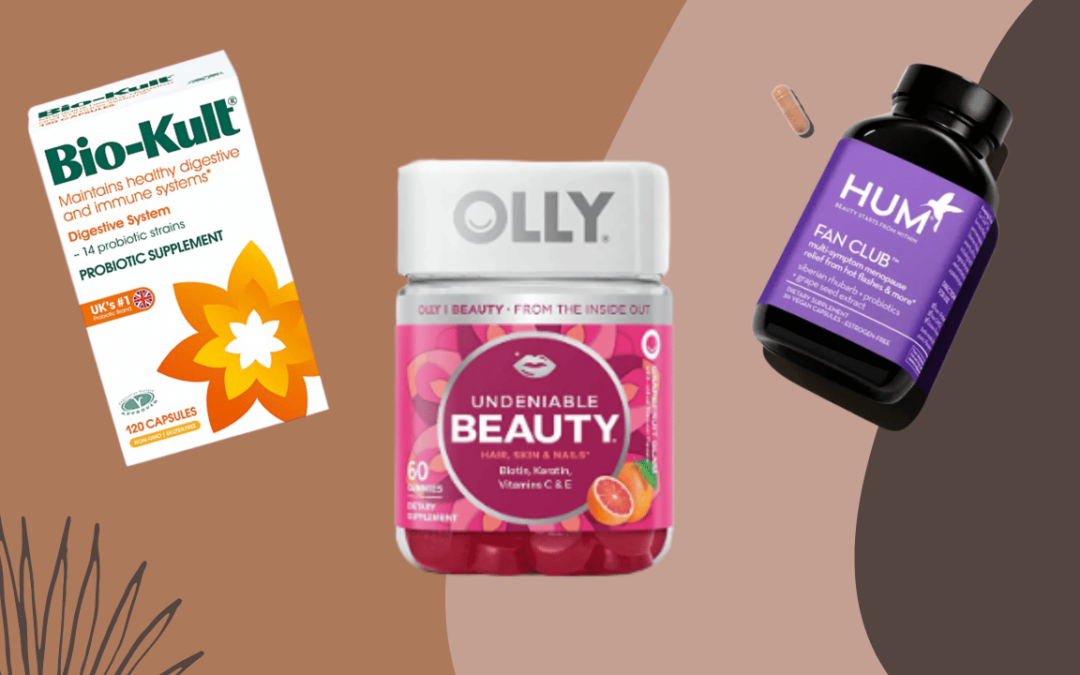
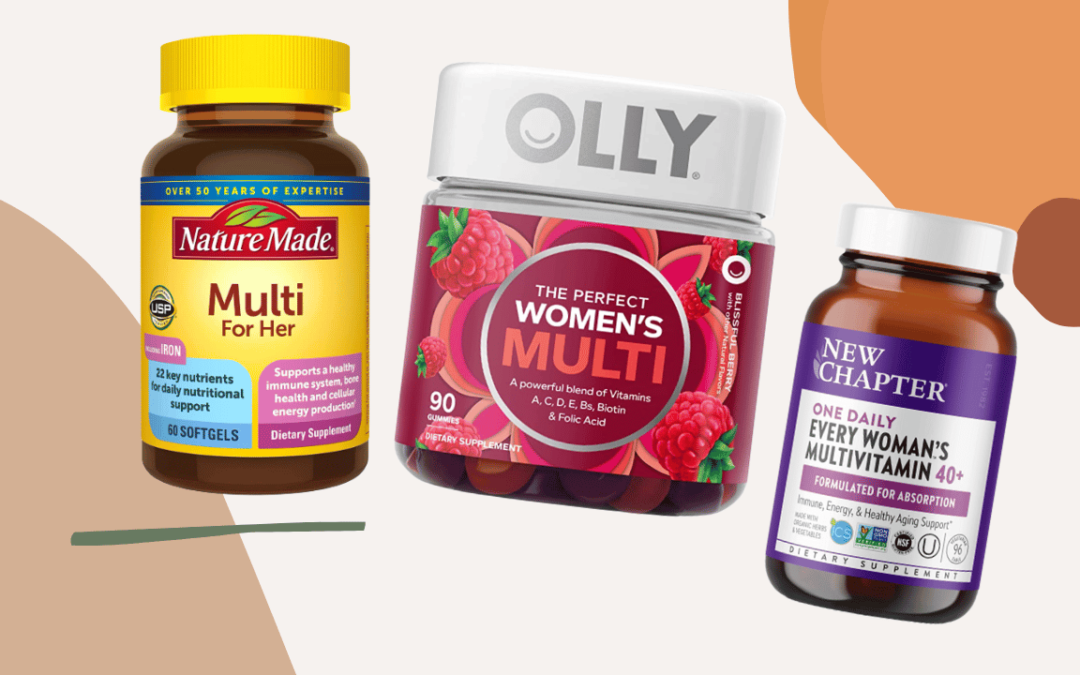
0 Comments